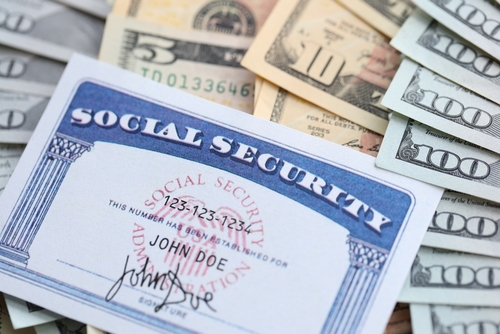If you are new to living or working in the United States, you will likely hear about something called a Social Security number. This unique nine-digit number is essential for many aspects of life in the U.S. Understanding what it is, why it’s important, and how to get one can make your transition much smoother.
This guide provides clear, straightforward information about Social Security numbers. We will explain their purpose, who is eligible to receive one, and the steps you need to take to apply. Our goal is to give you the confidence to navigate this important process.
What is a Social Security Number?
A Social Security number (SSN) is a nine-digit number issued by the U.S. government to citizens, permanent residents, and some temporary residents. The Social Security Administration (SSA) is the government agency responsible for issuing these numbers.
An SSN is used to track your lifetime earnings and the number of years you have worked. This information helps determine your eligibility for Social Security retirement, disability, and survivor benefits. It is also used for a variety of other purposes, from filing taxes to opening a bank account.
Your Social Security number is private and should be protected. Sharing it unnecessarily can put you at risk of identity theft.
Why is a Social Security Number Important?
Having a Social Security number is necessary for many key activities in the United States. You will need an SSN to:
- Get a job: Employers require an SSN to report your wages to the government and to ensure you are authorized to work in the U.S.
- File taxes: The Internal Revenue Service (IRS) uses your SSN to track your income and process your tax returns.
- Open a bank account: Most banks and credit unions will ask for your SSN to verify your identity when you open an account.
- Apply for a loan: Lenders use your SSN to check your credit history when you apply for a mortgage, car loan, or personal loan.
- Obtain a driver’s license: Many state Departments of Motor Vehicles (DMVs) require an SSN to issue a driver’s license.
- Receive government benefits: An SSN is required to apply for Social Security benefits, unemployment assistance, and other government services.
Essentially, an SSN is your primary identifier for financial and legal matters in the United States.
Who is Eligible for a Social Security Number?
Eligibility for a Social Security number depends on your immigration status. Generally, you can get an SSN if you are:
- A U.S. citizen.
- A noncitizen authorized by the Department of Homeland Security (DHS) to work in the United States.
This includes lawful permanent residents (green card holders) and nonimmigrants with a work visa, such as an H-1B or L-1 visa. Certain other nonimmigrants, like F-1 students who are authorized for employment, may also be eligible.
If you are not authorized to work in the U.S., you may still be able to get an SSN if you can prove you need it for a valid non-work reason. This is less common and typically applies when a federal, state, or local law requires you to have an SSN to receive a specific benefit or service.
What to Do If You Lose Your Card
If your Social Security card is lost or stolen, you can request a replacement. In many states, you can do this online through your personal “my Social Security” account on the SSA website. If you are not eligible to apply online, you will need to complete Form SS-5 again and provide documentation of your identity.
Requesting a replacement card is also free. However, you are limited to three replacement cards in a year and 10 during your lifetime.
Get Your Financial Life Started
Obtaining a Social Security number is a critical step for anyone planning to work and live in the United States. It unlocks your ability to get a job, manage your finances, and access important services. By following the steps outlined in this guide and ensuring your documents are in order, you can complete the process with confidence.
Once you have your SSN, you can take the next steps in your financial journey, like opening a U.S. bank account. To learn more about managing your finances as an immigrant, explore our resources for newcomers.
FAQ
What is a Social Security Number (SSN)?
A Social Security Number (SSN) is a unique nine-digit number issued by the U.S. government. It is used to track your earnings, report your taxes, and determine your eligibility for certain benefits.
Why do I need an SSN?
You’ll need an SSN for various purposes, such as getting a job, opening a bank account, filing taxes, and accessing government services. It’s an essential part of building your financial and legal identity in the U.S.
Who is eligible to apply for an SSN?
Generally, U.S. citizens, lawful permanent residents, and certain nonimmigrant workers or students authorized to work in the U.S. are eligible to apply for an SSN. Check with the Social Security Administration (SSA) to confirm your specific eligibility.
Can I use my SSN for other purposes?
Yes, your SSN may also be used for purposes like applying for loans, enrolling in certain services, or verifying your identity when required. However, it’s important to protect your SSN to prevent identity theft.
If you have additional questions, visit the Social Security Administration website or speak with a representative for personalized guidance.
